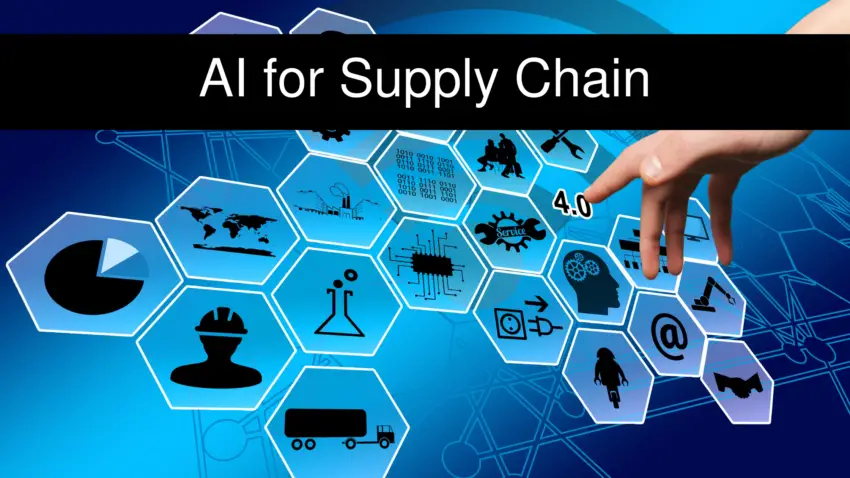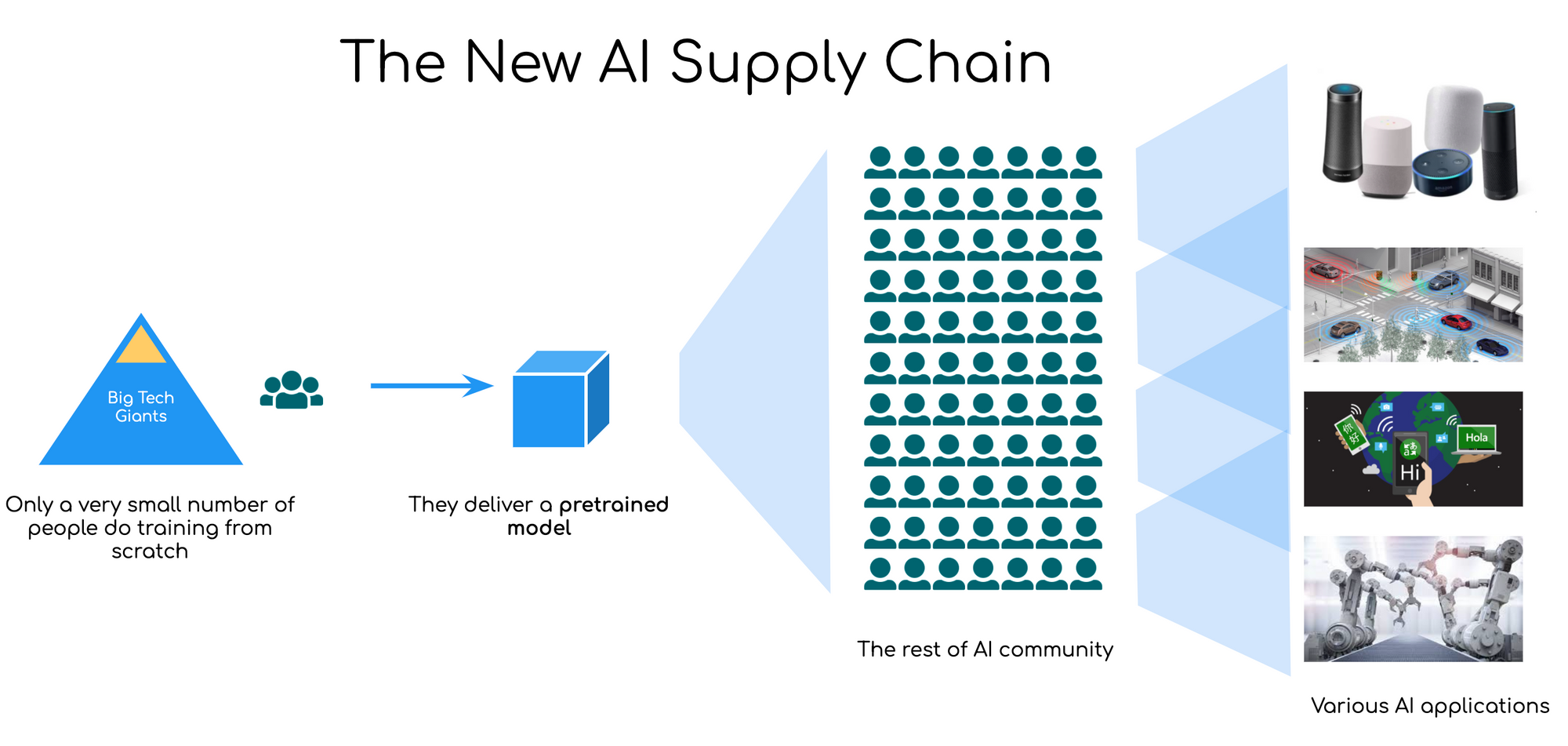AI in Supply Chain Management: Efficiency and Optimization

Artificial Intelligence (AI) is revolutionizing numerous industries, and supply chain management is no exception. By leveraging AI’s capabilities, businesses can significantly enhance efficiency and optimization throughout their supply chain processes.

One of the key ways AI assists in supply chain management is through predictive analytics. AI algorithms can analyze vast amounts of historical data to identify patterns, predict future demand, and optimize inventory levels. This proactive approach enables businesses to avoid overstocking or understocking, leading to reduced waste and increased profits.

AI also plays a crucial role in optimizing transportation and logistics operations. By considering factors like traffic patterns, weather conditions, and carrier performance, AI can determine the most efficient routes, schedules, and carriers for transporting goods. This optimization reduces transit times, minimizes transportation costs, and improves overall operational efficiency.
Moreover, AI-powered automated systems can streamline inventory management. Using real-time data from sensors and tracking devices, AI can track inventory levels, predict stockouts, and trigger automatic replenishment orders when necessary. This automation ensures that the right inventory is available at the right time and location, reducing lead times and preventing disruptions.
Furthermore, AI can enhance supply chain collaboration and visibility. By providing a centralized platform for sharing data and insights, AI enables stakeholders across the supply chain to access real-time information and make informed decisions. This improved collaboration leads to increased efficiency, reduced coordination costs, and better overall supply chain performance.
In summary, AI has become a valuable asset for businesses looking to enhance the efficiency and optimization of their supply chain operations. By leveraging AI’s capabilities for predictive analytics, logistics optimization, inventory management, and collaboration, organizations can achieve significant improvements in productivity, reduce costs, and gain a competitive advantage in today’s dynamic business environment.### Ai In Supply Chain Management: Efficiency And Optimization
Executive Summary
The integration of artificial intelligence (AI) in the supply chain fosters operational and optimization. The ability of AI to process colossal volumes of data, drive decision-making, and enhance forecasting accuracy yields significant benefits. This article embarks on an extensive exploration into the transformative effects of AI on supply chain management, highlighting the substantial advantages and outlining actionable steps for harnessing its transformative potential.
Introduction
In today’s landscape of intricate and swiftly evolving global supply chains, the adoption of advanced technologies has emerged as an imperative. AI has stepped to the forefront of this transformation, empowering businesses with novel avenues for improving efficiency, optimizing processes, and making well-versed choices. Through the exploitation of AI’s analytical prowess, predictive capabilities, and automation, supply chains stand to reap remarkable benefits, gaining a competitive edge in this ever-more-demanding business environment.
FAQs
- What precisely is AI and how does it operate?
AI encompasses a spectrum of technologies, including natural language processing (NLP), machine learning (ML), and computer vision, which are employed to empower computers with human-like cognitive abilities.
- How can businesses integrate AI into their supply chains?
Integrating AI into supply chains involves a multi-phased approach that often encompasses data gathering, model development, implementation, and meticulous monitoring.
- What types of AI solutions are readily available for supply chains?
A diverse array of AI solutions exists for supply chains, designed to address specific challenges and enhance specific aspects of operations. These encompass solutions for demand forecasting, inventory optimization, predictive maintenance, fraud detection, and more.
Top 5 Subtopics on AI in Supply Chain Management
1. Demand Forecasting
Accurate demand forecasting is paramount to efficient supply chain management. AI algorithms, leveraging historical data, market trends, and external factors, can generate highly precise forecasts. This empowers businesses with enhanced planning capabilities, allowing them to optimize inventory levels, smooth production, and fulfill customer needs more effectively.
- Time-series analysis: Explores historical data patterns to uncover trends and seasonalities.
- Machine learning algorithms: Learn from data to make accurate predictions based on complex relationships.
- External data integration: Incorporates market research, consumer surveys, and economic data to enhance forecasting accuracy.
2. Inventory Optimization
Managing inventory efficiently is a complex task, requiring careful balancing of stock levels to meet demand while minimizing waste. AI can streamline this process, optimizing inventory levels, reducing carrying costs, and preventing stockouts.
- Safety stock optimization: Calculates ideal safety stock levels to buffer against demand variability and supply chain disruptions.
- ABC analysis: Classifies inventory items based on their value and demand, enabling focused management strategies.
- Just-in-time inventory: Leverages AI’s predictive capabilities to order inventory only when needed, minimizing carrying costs.
3. Predictive Maintenance
Unplanned equipment downtime can cause significant disruptions and financial losses. Predictive maintenance utilizes AI to analyze sensor data and historical maintenance records, identifying potential issues before they escalate. This enables proactive maintenance, reducing downtime, extending equipment lifespan, and improving overall supply chain efficiency.
- Real-time monitoring: Collects and analyzes data from sensors embedded in equipment to detect anomalies and predict failures.
- Historical data analysis: Examines past maintenance records to identify patterns and establish predictive models.
- Machine learning algorithms: Leverage data to learn from patterns and make accurate predictions about equipment health.
4. Fraud Detection
Supply chains are vulnerable to various types of fraud, including counterfeit goods, false invoices, and payment fraud. AI can analyze vast volumes of data to detect suspicious patterns and identify fraudulent activities, safeguarding businesses from financial losses and reputational damage.
- Anomaly detection algorithms: Identify transactions or events that deviate significantly from normal patterns, flagging potential fraud.
- Machine learning models: Learn from historical fraud data to recognize fraud patterns and make accurate predictions.
- Data visualization: Presents complex data in an accessible manner, enabling investigators to quickly identify and respond to suspicious activities.
5. Warehouse Management
Efficient warehouse management is critical for fast and accurate order fulfillment. AI can optimize warehouse operations, automating tasks, optimizing space utilization, and improving inventory visibility.
- Automated guided vehicles (AGVs): Navigate warehouses autonomously, transporting goods and streamlining order fulfillment.
- Slotting optimization: Analyzes data to assign products to optimal storage locations, minimizing travel time and improving picking efficiency.
- Inventory tracking using RFID: Tracks inventory items using radio frequency identification (RFID) technology, providing real-time visibility and minimizing inventory discrepancies.
Conclusion
The integration of AI into supply chain management has the power to transform businesses, enabling them to achieve greater efficiency, optimize operations, and make more intelligent decisions. By embracing AI’s capabilities, businesses can gain a competitive edge, reduce costs, and enhance customer satisfaction. As AI technology continues to advance, we can expect even more transformative applications in the realm of supply chain management, leading to further breakthroughs in efficiency and optimization. Embracing AI’s transformative potential is no longer a choice but a necessity for businesses seeking to thrive in today’s demanding and ever-evolving global marketplace.
Relevant Keyword Tags
- AI in supply chain management
- Supply chain optimization
- Demand forecasting
- Inventory management
- Predictive maintenance

